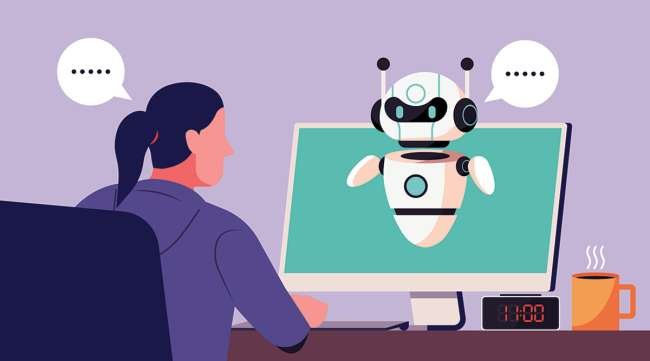Whether you like it or not, there is probably a good chance you might be interviewed by AI, especially if you are hunting for a new job soon. AI-powered recruitment quickly becomes the norm in most hiring processes, promising both efficiency and equity but poses very important questions about this shift.
It’s a win for both candidates and companies, right? Or does it completely strip away the human elements from an already stressful procedure? Here’s a rundown of key considerations.
What to Consider If Being Interviewed by AI Becomes Reality Globally?
- The Future of Recruitment: Will AI Be a Game-Changer?
Attending an interview by AI soon might sound like something out of science fiction, but it’s already a reality. Companies like Apriora are changing the hiring game with AI-based systems that conduct thousands of interviews daily. Their platform, Alex, is more than just a chatbot: it’s a smart recruiter trained on vast data across the internet.
The concept is undeniably efficient: Alex creates customized questions, adjusts based on responses, and provides detailed feedback to employers. This aggregation of steps could save time for candidates and companies alike. For those seeking equity, Alex’s approach may level the playing field by removing bias associated with traditional resume reviews. But can an algorithm fully grasp the subtleties of human interaction?
- Preparing for an AI Interview: A Mixed Bag
If you’re worried about how to adapt, know this: being interviewed by AI soon requires a mix of digital readiness and classic interview prep. Experts like Aaron Wang of Apriora suggest focusing on your internet connection and communication skills rather than obsessing over polished resumes. This offers hope to candidates who lack professional networking advantages or resume-building resources.
However, there are potential downsides. For one, while Alex engages conversationally and detects cheating, can it truly evaluate creativity, emotional intelligence, or interpersonal skills? These traits often emerge naturally in human-led interviews but might be lost in AI’s algorithmic rigidity.
At its core, this means preparing for an AI interview as if it’s a normal conversation but being extra careful. Does AI “equity” translate to real fairness between industries and roles, or does the system end up favoring tech-savvy ones?
- Pros and cons of a reduced hiring cycle
One of the most influential reasons companies might prefer using AI recruitment is a hiring timeline that is faster as compared to traditional hiring in non-managerial roles that have several rounds of interview sessions. This can be rather exhausting and time-consuming. Alex can combine several such stages into one. Here, for instance, if the recruiter phone screen goes hand-in-hand with technical assessment, it can also be an AI-led one-session process.
While this streamlining is no doubt efficient, it raises the question of whether hiring decisions will become overly mechanical. The shortened process may deny candidates the ability to demonstrate their unique strengths or build rapport with potential employers. As recruitment expert Brent Orsuga puts it, being interviewed by AI soon may become the norm, but is speed worth sacrificing human nuance?
- Will AI-Driven Interviews Feel Impersonal?
The greatest concern is that candidates will be disconnected from the process. Critics argue that tools like Alex could enhance the experience, allowing for flexible scheduling and less judgment. However, skeptics worry that a digital recruiter might lack the empathy and intuition that human interviewers bring.
Moreover, if Alex’s cheat detection impresses you, it might make the interviewee somewhat uncomfortable with this surveillance angle. The broader question persists: can AI ever take the human touch that is required in most cases to give professional relationships the right traction? If you are one of those soon-to-be interviewed by AI, this might be an important career goal and preference to understand.
Accept AI Interviews or Reject Them?
The debate over AI-led recruitment boils down to a tradeoff between efficiency and the human element. While platforms like Apriora promise equity and speed, they also risk oversimplifying the complex dynamics of hiring. If you’re likely to be interviewed by AI soon, approach it with an open mind, but don’t overlook its limitations. For companies, the challenge lies in ensuring that AI enhances the candidate experience rather than dehumanizing it.
AI in recruitment doesn’t go away, nor will it get any worse; it could even improve some aspects of the process. For now, let’s all stay vigilant enough to keep our technological advancement and human connections in equal balance. At the very least, a firm handshake cannot be replaced by an algorithm.
Also, see:
Top 5 drawing applications for children
